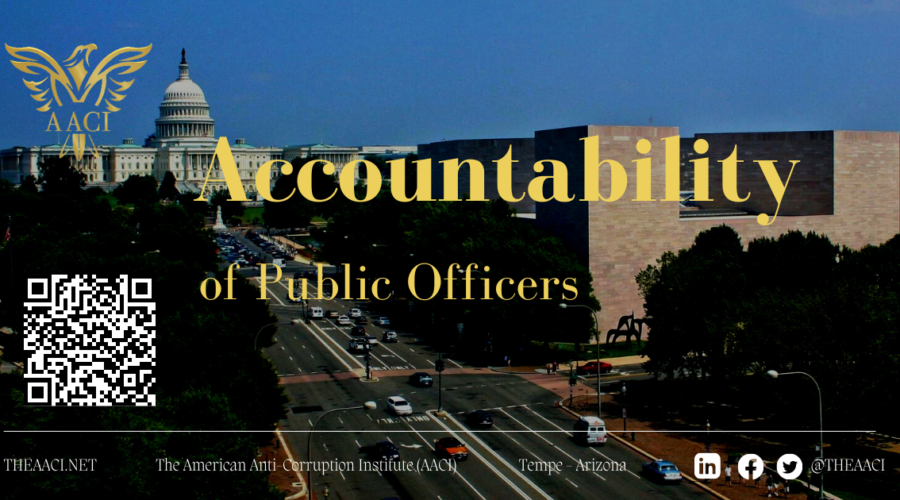June 13, 2022
Technical Staff
The United States has a history of corruption and scandals. One of the most recent and prominent scandals was the Watergate scandal. In that particular case, the scandal happened because of Richard Nixon and his staff. They were using their position as president to serve their own personal interests. This is an issue that is happening in many countries and is something that many people are not aware of. The issue is that public officers are not held accountable for their actions and are allowed to continue their actions without repercussion. This can lead to corruption. It is important that there is a way to hold public officers accountable.
Public officers, whether elected or not, are agents who act on behalf of the public. They are employees who should perform based on the contract they are a party to. As a result, there must be public institutions that can assess and evaluate public officers’ performance and hold them accountable. Government institutions have a responsibility to uphold the law in order to remain legitimate. However, this also means that these institutions need to be able to monitor, judge, and sanction public officers who breach the law. In many countries, this is not possible due to corruption in government institutions. In the article, we will be explaining the accountability of public officers.
What is accountability of public officers?
Accountability is a complex, abstract, and elusive concept 1. The American Anti-Corruption Institute (AACI) defines accountability as “the duty to report to stakeholders the results of executed responsibilities based on entrusted power. ” In a context of governance, accountability is a governance concept and falls primarily on those who are charged with governance. When applied properly, it restrains power and lowers corruption risks 2.
The accountability of public officers is the responsibility that they have to be transparent and open with their actions. This should be done in a way that the public can be confident that the officers are doing what is right. Public officers should be accountable for their actions and the decisions that they make, and the public should be able to trust them. In order for the accountability of public officers to work, the officers must be honest and open about their decisions and actions. They should also be able to be clear about what they are doing and why they are doing it. It is important for every public officer to be accountable for their actions.
Accountability of public officers in the United States
Public officials are accountable for their actions and are held responsible for their decisions. The accountability of public officers is divided into two categories: legal accountability and political accountability. Legal accountability is the responsibility of the judiciary. The judiciary is responsible for enforcing the law, with the support of other bodies, to ensure that public officials act within the bounds of the law. Political accountability, on the other hand, is the responsibility of the people. If a public official commits a crime, the people can hold a recall election and remove the public official from office.
Accountability of public officers in other countries
In some countries, public officers such as judges, prosecutors, and elected officials are held accountable for their decisions. This is done in order to create trust between the citizens and their government.
Conclusion
Public officers are often held accountable for their actions and decisions. The public has a right to know what public officers are doing, and they also have a right to have their complaints heard. Public officers should be open and honest with the public about what they are doing and how they are doing it. They should also be open and honest with the public about their mistakes and how they will make them better in the future. Public officers should also be accountable to the public. They should explain their actions and decisions to the public and be open to criticism and questioning.
NOTES
1 Sinclair, A. (1995) ‘The Chameleon of Accountability: Forms and Discourses’, Accounting, Organizations and Society 20.2–3: 219-37.
2 Exam Unit, “Principles of Fighting Corruption,” in Certified Anti-Corruption Manager (CACM) Review Textbook, 2022 ed. (United States of America: The Exam Unit of The American Anti-Corruption Institute LLC., January 15, 2022) page 37.











































